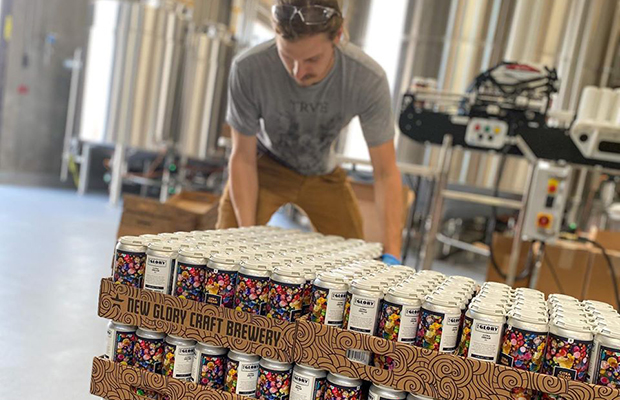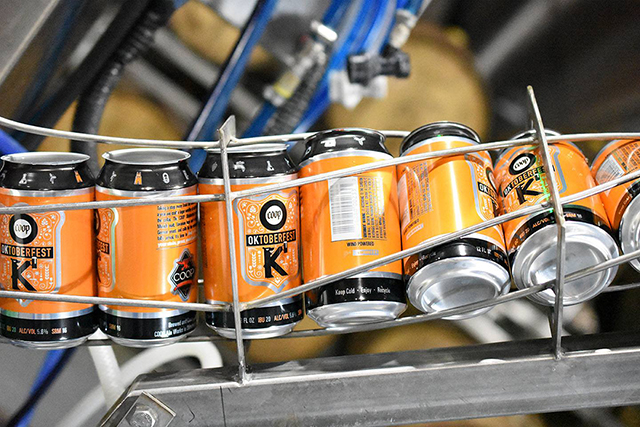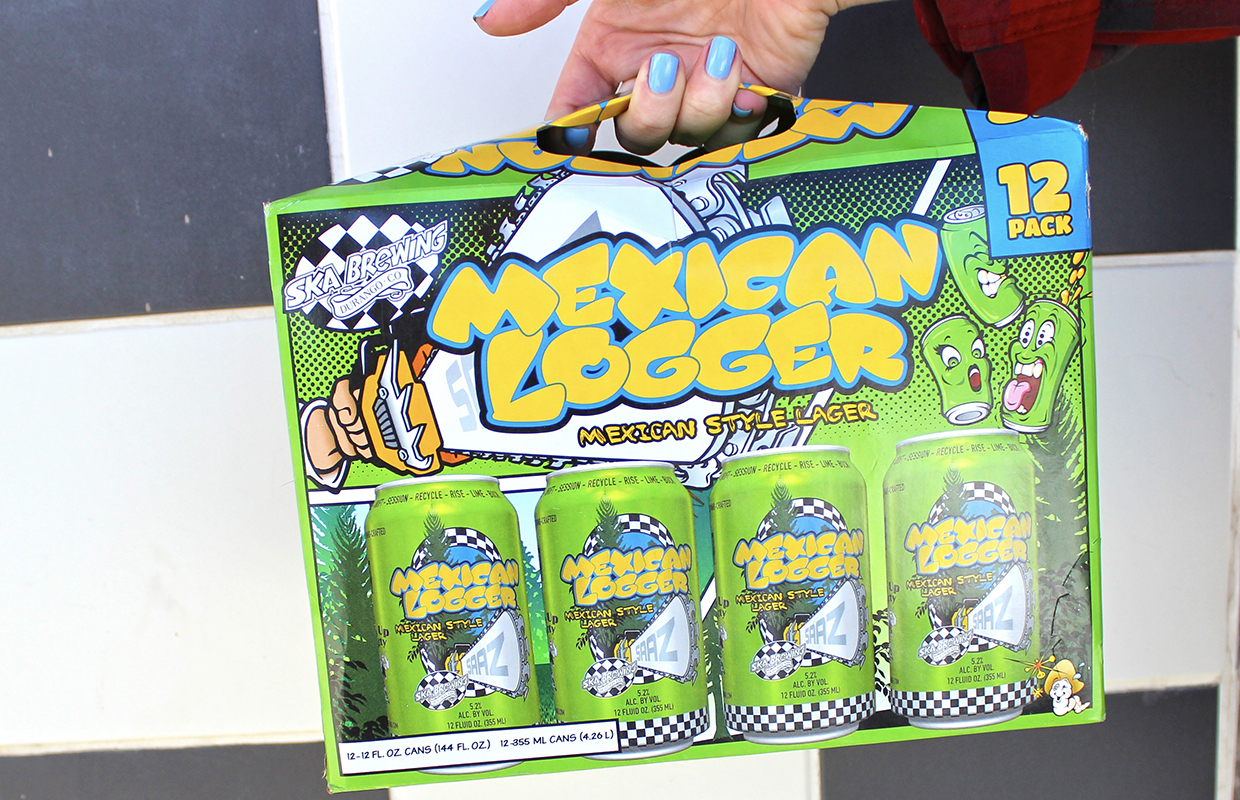
During the first part of the pandemic, stores were limiting in-person contact so a brewery’s distributor rep was crucial since the supplier rep wasn’t able to interact with accounts in person. Lone Tree Brewing moved to support its wholesaler by ensuring that they had the product they needed to fulfill the increased demand from off-premise.
Now, Lone Tree Director of Sales & Marketing, Dennis Stack, says that has shifted back towards the typical wholesaler and supplier dynamic recently.
“The support is still there but now we are able to represent the brewery again inside accounts,” he said.
Yet, things have changed a bit. In-store tasting and product sampling has been curbed so that places the burden of a sale almost entirely on verbal communication.
Scotty Hunter, the co-owner and Head of Sales for Urban Artifact, is excited about the use of digital sell sheets for his team.
“The concept is simple, we are taking the traditional information provided on a sell sheet and putting it into an approximately 30-second video,” he said. “We feel that this will help spread our message better not only to reps, but it should be useful as a selling tool at the account level as something else the distributor rep can present.”
For New Glory, the supplier/wholesaler dynamic hasn’t changed much, aside from constant communication of the state of the market and having a pulse on the reopening stages of each individual California county, explained the brewery’s Director of Sales, Rick Piccirilli.
“[We have to be] prepared to make changes to accommodate tomorrow’s needs of the market,” he said. ”My observations have seen most changes take place within wholesalers themselves, transitioning their focus and manpower heavily toward the off-premise.”
Like many other breweries that have the ability to can or bottle beer, New Glory immediately pivoted from kegging upwards of 60% of its beer to canning nearly 100% of total production since mid-March.
”The intention behind the adjustment to packaging is to continue to satisfy the needs of independent off-premise retailers, off-premise chains, and to act as a convenient “to-go” package for on-premise retailers while maintaining the quality of our beer in lieu of negligent growler fills,” he said. ”In addition, data integrity with key accounts is a big deal for us.”
New Glory has streamlined its UPCs, pricing, and package sizes to be able to pump not only the core line of beers, but it has worked to have retail outlets offer an accessible variety of rotating and limited beers to the market in every class of trade.
”The way we’ve set this system up allows ease for our wholesalers and retailers to move beer in and out as rapidly as possible. A win for everybody,” Piccirilli said.
Lone Tree saw successful new product launches during the pandemic with consumers seeing more screen time, whether it be in downtime or working from home.
“We have also worked with our online delivery partners to ensure our products are current,” Stack said. “On-premise in the downtown core hasn’t recovered to the degree we have seen our suburban partners bounce back.”
As for New Glory’s transition to a reopening on-premise, Piccirilli said the brewery’s strategy with wholesalers is to forecast initial retail demands for draft and to keg and ship a limited amount of brands accordingly.
“As more counties lift restrictions and velocity continues to increase, the next steps are to ramp up keg quantities while slowly increasing the amount of different brands offered in kegs to wholesalers and retailers,” he said. “The challenges that every tier of the industry has faced and will face in our distribution footprint is and will be new to everyone.
“The best thing we can do as members of different tiers of an industry is to remain communicative, collaborative, and patient with each other.”




1 Trackback / Pingback